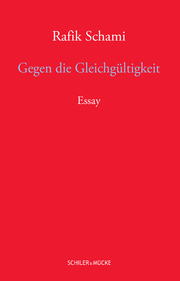Writing Jewish Culture (E-Book, EPUB)
Writing Jewish Culture
eBook - Paradoxes in Ethnography
Bibliographische Informationen
Format: Digitale Rechteverwaltung: Adobe DRM
Beschreibung
Focusing on Eastern and Central Europe before WWII, this collection explores various genres of "ethnoliterature" across temporal, geographical, and ideological borders as sites of Jewish identity formation and dissemination. Challenging the assumption of cultural uniformity among Ashkenazi Jews, the contributors consider how ethnographic literature defines Jews and Jewishness, the political context of Jewish ethnography, and the question of audience, readers, and listeners. With contributions from leading scholars and an appendix of translated historical ethnographies, this volume presents vivid case studies across linguistic and disciplinary divides, revealing a rich textual history that throws the complexity and diversity of a people into sharp relief.
Autorenportrait
Andreas Kilcher is a professor at ETH Zurich and author of The Linguistic Theory of Kabbalah as an Aesthetical Paradigm and Dictionary of German-Jewish Literature.
Gabriella Safran is the Eva Chernov Lokey Professor in Jewish Studies at Stanford University and author of Wandering Soul: The Dybbuk's Creator, S. An-sky.
Inhalt
Note on Transliteration and NamesIntroduction / Andreas Kilcher and Gabriella SafranPart 1: Reinventing the "Jews" in Ethnographic Writing1. The Voice of a Native Informer: Salomon Maimon Describes Life in Polish Lithuania / Liliane Weissberg2. Legends of Authenticity: Das Buch von den polnischen Juden (1916) by S. J. Agnon and Ahron Eliasberg / Sylvia Jaworski3. The Cold Order and the Eros of Storytelling: Joseph Roth's "Exotic Jews" / Andreas Kilcher4. Yiddish Ethnographic Poetics and Moyshe Kulbak's "Vilne" / Jordan FinkinPart 2: Seeing, Hearing, and Reading Jews5. Listening in the Dark: The Yiddish Folklorists' Claim of a Russian Genealogy / Gabriella Safran6. Ethnoliterary Modernity: Jewish Ethnography and Literature in the Russian Empire and Poland (1890-1930) / Annette Werberger7. Imagining the Wandering Jew in Modernity: Exegesis and Ethnography in Feuchtwanger's Jud Süss / Galit Hasan-Rokem8. Exclusion and Inclusion: Ethnography of War in Kriegsgefangene (1916) and Das Ostjüdische Antlitz (1920) / Eva Edelmann-Ohler9. Avant-Garde Authenticity: Ethnography and Identity in Moï Ver's Photobook Ein Ghetto im Osten / Samuel SpinnerPart 3: Spaces of Jewish Ethnography between Diaspora and Nation10. Zionism's Ethnographic Knowledge: Leo Motzkin's and Heinrich York-Steiner's Narratives of Palestine (1898-1904) / Alexander Alon11. Eastern Europe in Argentina: Yiddish Travelogues and the Exploration of Jewish Diaspora / Tamar LewinskyPart 4: Politics and the Addressee of Ethnography12. From Custom Book to Folk Culture: Minhag and the Roots of Jewish Ethnography / Nathaniel Deutsch13. In Search of the Exotic: "Jewish Houses" and Synagogues in Russian Travel Notes / Alla Sokolova14. Ballads of Strangers: Constructing "Ethnographic Moments" in Jewish Folklore / Dani SchrireAppendicesNote to ReadersA. What Is Jewish Ethnography? (Handbook for Fieldworkers) / Naftoli Vaynig and Khayim Khayes, Translated by Jordan FinkinB. Research Your Shtetl / H. Aleksandrov, Translated by Jordan FinkinC. "A Strange Experience" / A. Almi, Translated by Gabriella SafranList of ContributorsIndex
E-Book Informationen
„eBooks“ sind digitale Bücher. Um eBooks lesen zu können, wird entweder eine spezielle Software für Computer, Tablets und Smartphones oder ein eBook-Reader benötigt. Da es eBooks in unterschieldichen Formaten gibt, gilt es, folgendes zu beachten.
Von uns werden digitale Bücher in drei Formaten ausgeliefert. Die Formate sind EPUB mit DRM (Digital Rights Management), EPUB ohne DRM und PDF. Bei den Formaten PDF und EPUB ohne DRM müssen Sie lediglich prüfen, ob Ihr eBook-Reader kompatibel ist. Wenn ein Format mit DRM genutzt wird, besteht zusätzlich die Notwendigkeit, dass Sie einen kostenlosen Adobe® Digital Editions Account besitzen. Wenn Sie ein eBook, das Adobe® Digital Editions benötigt, herunterladen, erhalten Sie eine ASCM-Datei, die zu Digital Editions hinzugefügt und mit Ihrem Account verknüpft werden muss. Einige eBook-Reader (zum Beispiel PocketBook Touch) unterstützen auch das direkte Eingeben der Login-Daten des Adobe Accounts – somit können diese ASCM-Dateien direkt auf das betreffende Gerät kopiert werden.
Da eBooks nur für eine begrenzte Zeit – in der Regel 6 Monate – herunterladbar sind, sollten Sie stets eine Sicherheitskopie auf einem Dauerspeicher (Festplatte, USB-Stick oder CD) anlegen. Außerdem ist die Anzahl der Downloads auf maximal 5 begrenzt.
Weitere Artikel aus der Kategorie "Belletristik/Essays, Feuillton, Literaturkritik, Interviews"
im Buchladen vorrätig

im Buchladen vorrätig

Lieferbar innerhalb ca. einer Woche

Lieferbar innerhalb 24 Stunden






